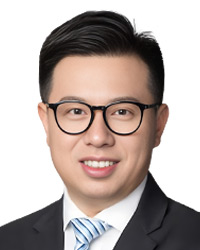China’s regulations do not restrict private equity (PE) funds from acting as controlling shareholders of companies seeking to go public. But it’s uncommon for a PE fund to promote a company’s IPO after controlling it.
This may be related to factors such as the nature of PE funds’ financial investments and the absence of professional management teams. In the composition of shareholders in listed companies, most controlling shareholders are business-related persons (controlling entities) or state-owned enterprises.
This article analyses the legal difficulties and challenges that PE funds may encounter in buyout investments.
Duration, control stability
There is no “evergreen fund” in China. Regulations require that PE funds must have a duration. Since the core demand of a PE fund investment is to exit, their duration is relatively short, in practice, usually five to seven years.

Partner
Guantao Law Firm
According to the Measures for the Administration of Registration of Initial Public Offerings of Stocks, issuers should also have stable controlling rights, which are directly affected by the duration of PE funds. Yet establishment of a PE fund, its subsequent investment and preparation for listing by investees all require a significant amount of time.
In addition, controlling shareholders are subject to a lock-up period and restrictions on share reduction after listing. Therefore, it’s generally difficult for the duration of PE funds to meet regulatory requirements on the stability of the issuer’s control before and after listing.
Horizontal competition
If a PE fund is to become controlling shareholder of an issuer, it needs to avoid horizontal competition. According to the above-mentioned measures, the issuer cannot have horizontal competition with its controlling shareholder, actual controller and other enterprises under its control that may have material adverse effect on the issuer.
In practice, PE funds such as industrial investment funds and their affiliates often invest in several companies in the same industry, or upstream and downstream companies of investees.
If the manager of a PE fund is deemed the issuer’s actual controller, while an affiliated PE fund under its management and control invests in companies with the same and similar business, the manager should avoid horizontal competition with the issuer or seek other overall solutions.
Commitments, responsibilities

Lead Associate
Guantao Law Firm
After a PE fund takes control of a company, if the company has subsequent financing, later round investors often require the controlling shareholder or actual controller to assume special obligations such as a valuation adjustment mechanism (VAM) and repurchase.
If so, this can jeopardise the interests of the PE fund’s investors; if not, it may affect subsequent financing of the investee. The operation of the investee involving borrowing and the controlling shareholder may be required to provide security.
In this case, pursuant to the Several Provisions on Strengthening the Supervision of Private Investment Funds, issued by the China Securities Regulatory Commission (CSRC), with equity investment as the target, when a PE fund provides security for its investee, the balance of the security amount must not exceed 20% of its paid-in amount, and the security’s expiration date must not be later than the exit of the investment.
If a PE fund becomes controlling shareholder of an issuer – including as directors, supervisors and senior executives – it should usually make commitments on matters such as the truthfulness, accuracy, completeness and timeliness of disclosed information, liability for compensation or indemnification according to the law, reduction and standardisation of connected transactions, compliance and liability for fraudulent issuance.
In practice, most of a PE fund’s capital is invested in companies, with only a small portion used for the fund’s expenses. In this regard, it may be hard to ask a PE fund to prove its ability to assume liability for compensation or indemnification.
Restrictions on share reduction
Investors in PE funds all have exit goals. Generally, as financial investors with a low percentage of the shareholding, PE funds are subject to a lock-up period of 12 months from completion of the investee’s IPO and listing.
If the PE fund is controlling shareholder or actual controller of the issuer, its shares must not be transferred within 36 months of listing, according to the relevant provisions on the share reduction. Shares held by relatives and persons acting in concert of controlling shareholders and actual controllers are similarly locked up.
If the issuer does not have, or has difficultly identifying, an actual controller, the issuer’s shareholders must – in descending order of shareholding – undertake to lock up their shares for 36 months from listing, until the total number of shares locked up is not less than 51% of the total prior to issuance.
In-kind share allocation
In-kind allocation of shares from private equity and venture capital funds to investors refers to an arrangement whereby a PE fund manager agrees with investors to allocate shares of a listed company held by the fund prior to its IPO to investors (shareholders) by non-transactional transfer.
The CSRC regulator last year launched a pilot programme on the allocation of shares in kind (known as “distribution-in-kind”) from PE and venture capital (VC) funds to investors, adding a much-needed alternative exit option for them.
But if a PE or VC fund is the controlling shareholder, actual controller or largest shareholder (including person acting in concert) of a listed company, it is not allowed to participate in the pilot programme. Participation of PE funds in the pilot programme is therefore limited.
Xiao Fei is a partner at Guantao Law Firm. He can be contacted on +86 139 1008 1416 or by email at xiaofei@guantao.com
Li Wen is a lead associate at Guantao Law Firm. She can be contacted on +86 134 6660 5064 or by email at lw@guantao.com





















